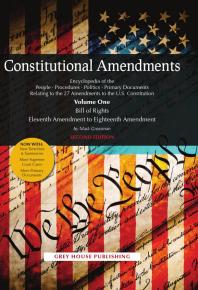Broad resources like the ones in the Exploration tab help to place your topic in the context of the broader discipline that you study, reveal useful search terms, and - best of all - stimulate questions that inspire your writing.
When a reference tool is too broad, it can be useful to seek out a book, and sometimes scholars get together to tackle a subject, breaking it apart into chapters written by experts on that specific subtopic. We call those books anthologies, and they can be very helpful in choosing a rabbit hole, so to speak.

Estimated national and state data, reported agency-level crime statistics, and graphs of specific variables. You can also download bulk datasets from a variety of UCR topics.
Captures what has been going on in the news and behind the scenes with new articles and updates to past articles.
A wide-ranging dictionary covering terms from the areas of criminology, psychology, pathology, forensic medicine, and financial investigation.
364.60973 O984p
Examines the intertwined and multi-layered fields of American sentencing and corrections. In print only.
Examines the global landscape of all the key theories, presenting them in the context needed to understand their strengths and weaknesses.

Amendments, proposed amendments, alternate constitutions, and amending issues
Provides an essential resource for practitioners in the field of forensic science.
Covers such high-profile topics as the Americans with Disabilities Act, capital punishment, domestic violence, gay and lesbian rights, and physician-assisted suicide.
Covers the key concepts of forensic science